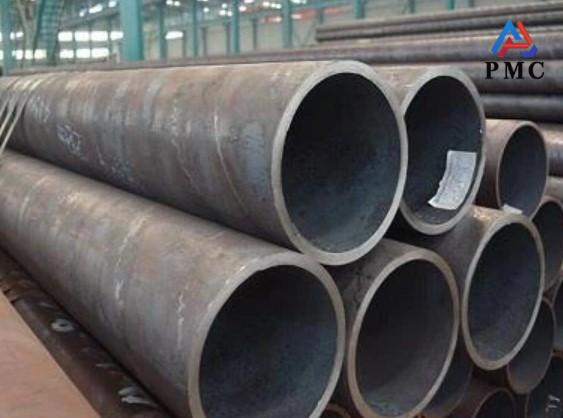
Standards for Boiler Tubes
Boiler tubes play a vital role in boiler systems, serving as the channels that carry high-temperature, high-pressure water, steam, or other media. Because they operate under extremely demanding conditions, these tubes must offer exceptional resistance to heat, pressure, and corrosion, along with strong mechanical performance. To guarantee their safety and reliability, a range of international standards has been established. These standards cover every aspect—from material selection and manufacturing processes to inspection methods—ensuring that boiler tubes meet strict quality requirements.
Key Technical Requirements in Standards
Material composition: Carbon steel, alloy steel, stainless steel.
Mechanical properties: Tensile strength, yield strength, hardness.
Dimensions: Outside diameter, wall thickness, length tolerances.
Manufacturing methods: Seamless vs. welded tubes.
Testing requirements: Hydrostatic test, non-destructive testing (NDT), flattening and flaring tests, hardness test.
Heat treatment: Normalizing, annealing, quenching & tempering.
Surface condition: Descaling, pickling, varnishing.
ISO International Standards
The core ISO boiler tube standards of the International Organization for Standardization (ISO) are the ISO 9327 series, which specifies the composition, properties, dimensions, and inspection requirements for seamless steel tubes used in boilers and pressure vessels, ensuring reliability in high-temperature and high-pressure environments. ISO 9330 also governs the manufacture and inspection of welded boiler tubes, applicable to medium- and low-pressure systems. ISO standards are globally recognized, providing unified technical specifications for the international trade of boiler tubes.
ASTM American Society for Testing and Materials Standards
ASTM (American Society for Testing and Materials) has several core boiler tube standards:
A192/A192M is the standard for thin-walled, small-diameter seamless carbon steel pipes for high-pressure boilers, featuring excellent thermal conductivity and weldability.
A213/A213M covers seamless alloy steel pipes made of T5/T9 and other materials for boilers, suitable for high temperature and high pressure;
A335/A335M is a seamless alloy steel pipe made of P5/P9 and other materials for high-temperature and high-pressure boilers, which is heat-resistant and corrosion-resistant.
A179/A179M is a standard for seamless carbon steel pipe used in medium- and low-pressure boiler heat exchangers. This rigorous and comprehensive standard is widely used in North America and other regions.
EN European Standards
Among the European Committee for Standardization (CEN) standards related to boiler tubes, the EN 10216 series is the most core, specifying the technical delivery conditions for seamless steel tubes suitable for boilers and pressure vessels.
EN 10216-2 addresses non-alloy/alloy steel seamless tubes (suitable for high temperature and high pressure), while EN 10216-3 addresses alloy steel seamless tubes (suitable for boilers and pressure vessels).
EN 12952 specifically regulates the design and manufacture of water-tube boilers, covering boiler tube materials, processes, and inspection requirements.

JIS Japanese Industrial Standard
Japanese Industrial Standards (JIS) have a significant impact on the boiler tube industry. Core standards include JIS G3461 (carbon steel/alloy steel seamless tubes for medium- and high-pressure boiler systems, including requirements for boilers and heat exchangers) and JIS G3462 (alloy steel seamless tubes for boilers and heat exchangers for high-temperature and high-pressure environments). JIS standards are characterized by high precision and strict quality control and are widely used in Japan and Asia.
ASME American Society of Mechanical Engineers Standards
The American Society of Mechanical Engineers (ASME) standards play a key role in the boiler and pressure vessel fields. Core boiler tube standards include ASME SA192 (seamless carbon steel tubes for high-pressure boilers, similar to ASTM A192/A192M) and ASME SA213 (seamless ferritic/austenitic alloy steel tubes for boilers, etc., similar to ASTM A213/A213M). These standards are characterized by strict quality and high safety, and are widely used in related industries around the world.
DIN German Standard
The German Institute for Standardization (DIN) has established a series of standards related to boiler tubes, the most prominent of which is DIN 17175. This standard specifies the requirements for seamless steel tubes for high-temperature service, suitable for boilers and pressure vessels. Materials used include alloy steels such as St35.8, St45.8, and 15Mo3, offering excellent heat and corrosion resistance.
GB Chinese National Standard
Chinese national standards (GB) also play an important role in the field of boiler tubes. The following are some GB standards related to boiler tubes:
GB 5310: This standard specifies the requirements for seamless steel tubes for high-pressure boilers, suitable for use in high-temperature and high-pressure environments. Materials include alloy steels such as 20G, 15CrMoG, and 12Cr1MoVG.
GB 3087: This standard specifies the requirements for seamless steel tubes for low-pressure boilers, suitable for medium- and low-pressure boiler systems.
This GB standard addresses the actual needs of the Chinese boiler industry and is widely used in the domestic market.
Applications of boiler tubes under standards
1. Power generation (thermal power plants, nuclear power).
2. Industrial boilers (chemical plants, refineries, paper mills).
3. Heat exchangers and pressure vessels.
4. Petrochemical and energy industries.
Conclusion
International standards for boiler tubes cover materials, manufacturing processes, inspection methods, and other aspects, ensuring their safety and reliability in high-temperature and high-pressure environments. While standards vary from country to country, they all aim to improve the quality and performance of boiler tubes. In practical applications, the appropriate standard should be selected based on specific needs, and the relevant technical requirements must be strictly adhered to to ensure the safe operation of boiler systems.
- 【Prev】 : ERW Pipe vs GI Pipe
- 【Next】 : Seamless Pipe for Oil Transportation


